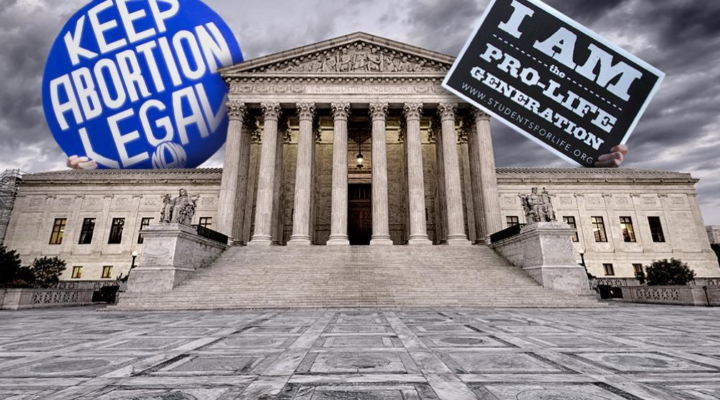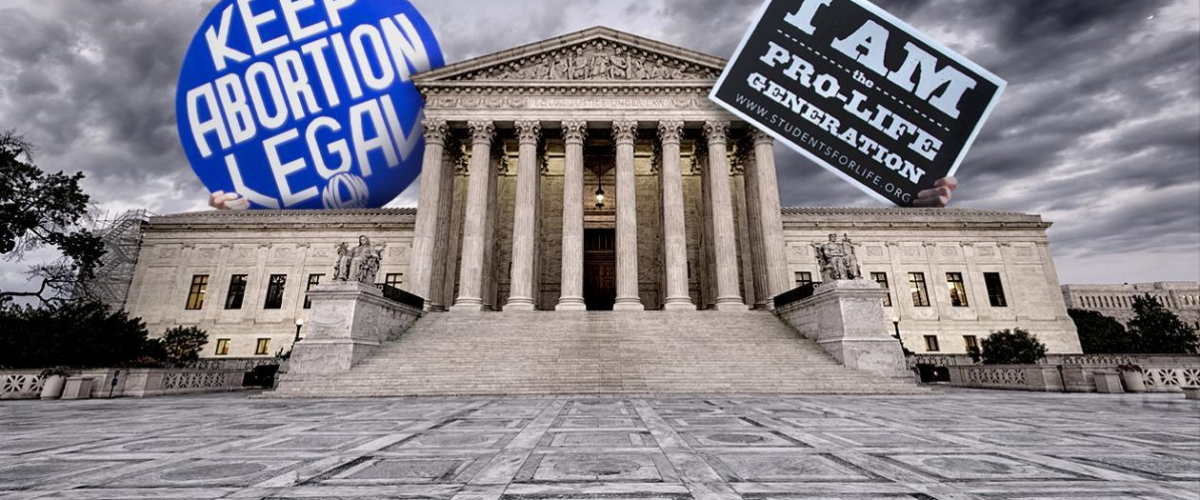The largest decline in support for fully banning abortion after the U.S. Supreme overturned Roe v. Wade in 2022 was among evangelicals, political scientist Ryan Burge said in a recent “Graphs About Religion” report.
The Substack post combines statistics from Harvard University’s Cooperative Election Study with analysis by Burge, a political science professor at Eastern Illinois University and a leading expert on trends in American religion.
Burge wrote that he was “surprised” to find evangelicals were the only group he saw with “a clear drop off” in support for making abortion illegal regardless of circumstances since the Supreme Court’s 2022 Dobbs v. Jackson Women’s Health Organization decision.
“That’s actually something that popped up in the post about Southern Baptists,” Burge wrote. “Their support for a ban on abortion dropped noticeably after Dobbs and that seems to be the case among evangelicals more generally (both white and nonwhite).”
Since the high court ruling, which allows states to establish their own abortion laws, 14 states have instituted full bans, another seven have enacted bans after a period of six or more weeks of pregnancy, and bans have either been blocked or are pending in another three states, according to a New York Times report. Meanwhile, 19 states have enacted new protections for abortion and the procedure remains legal in six additional states.

New York Times graphic on state-by-state abortion access.
Among Southern Baptists, support for outright abortion bans rose from 31% in 2018 to 33% in 2021 before falling to 27% in 2022 and 2023, according to the study. Similarly, support for full bans hovered in the mid-30% range from 2017 to 2021 among white evangelicals before dropping to 30% after Dobbs.
“There are some other instances where support dropped in 2022, but then it rebounded back to pre-Dobbs levels in 2023. That’s true for Mainline Protestants, and Catholics (both white and nonwhite),” Burge added. The election study found roughly similar fluctuations among nonwhite Catholics and Mormons.
“I don’t really know if I feel like there’s much that jumps out to me here beyond that evangelical shift,” he said. “Which is something worth thinking about in terms of policy implications.”

Ryan Burge
Burge also examined the effect of the Dobbs decision on partisan attitudes toward complete abortion bans.
“For the Democrats, I don’t think we can come to any grand conclusion. Support for a ban was 12% before Dobbs, then dropped to 10% right after. But then it rose to 14% in 2023. Which just seems odd. I am going to just say I don’t see any discernible change here. Or at least not yet.”
However, a significant decline in support for completely banning abortion was measured among independents, dropping from just over 20% before the Supreme Court ruling to 16% in 2022. Support bumped up to 19% the following year.
“That 19% statistic was pretty much the average over the years before Dobbs was decided,” Burge explained. “Maybe there was an initial drop in support among independents but then it returned to equilibrium.”
With Republicans, support for a complete abortion ban was on the rise from 2017 to 2020 and was holding firmly at 30% until dropping to 25% during the year of and after the Dobbs ruling.
“I feel reasonably confident in saying that some Republicans responded to the SCOTUS decision by backing off from an abortion ban,” Burge said. “Not a ton, but it’s way outside the margin of error, too.”
The study also reported small-but-important declines in post-Dobbs support for outright bans across most age groups, which Burge broke into five-year birth cohorts. For example, support for total bans declined from 20% to 16% among those born from 1945 to 1949, from 21% to 17% among those born from 1970 to 1974, and from 22% to 19% among those born from 1995 to 2000.
“For many cohorts, support for a ban dropped by 3-4 points (even folks from the Boomer generation). In fact, the only two cohorts where support for a ban didn’t really shift post Dobbs were among Millennials. I would have never guessed that. What’s also worth pointing out is that older Americans are consistently less supportive of a ban than younger ones.”
In his Substack post, Burge also analyzed responses respondents gave when asked to gauge support for allowing women full access to abortion services.
 Overall, there were few statistically significant shifts among faith groups on the issue of full access, he said. “It doesn’t look like there’s any religious tradition that moved more in favor (or in opposition) to abortion access after Dobbs. In fact … I don’t know if anyone could have picked up when Dobbs was announced just by looking at the height of the bars.”
Overall, there were few statistically significant shifts among faith groups on the issue of full access, he said. “It doesn’t look like there’s any religious tradition that moved more in favor (or in opposition) to abortion access after Dobbs. In fact … I don’t know if anyone could have picked up when Dobbs was announced just by looking at the height of the bars.”
It was much the same when the question was considered across partisan groups, Burge added. Full access was favored by 85% of Democrats in 2021 before rising to 86% in 2022 and dipping to 84% in 2023. Among independents, support for full choice was at 58% the year before Dobbs and at 60% and 61% following the decision.
“For Republicans, I don’t know what to make of this result,” he said. “Three in 10 Republicans favored abortion without restriction before Dobbs. It was the exact same share in late 2022, after SCOTUS had made its decision. But then it jumped to 34% in the 2023 data. I don’t know if that’s an aberration or not, honestly.”
Generationally, there was little shift in attitudes on the issue of full choice among those born from 1940 through 1959, while support for abortion access increased three points among respondents born in the late 1960s and five points if they were born in the early 1970s. Burge said he found “no discernable change” among most later generations.
“There was, however, a big increase among the youngest cohort included. Among those born between 1995 and 2000, support for abortion access was 66% before Dobbs and 70% after the decision.”
Burge concluded the Supreme Court decision did not significantly sway most Americans to increase or decrease support for either a full ban or full access to abortion.
“In short, Dobbs may have made some people a bit less willing to support a ban on abortion. However, it doesn’t look like it made many folks more willing to expand access to abortion services, either.”



